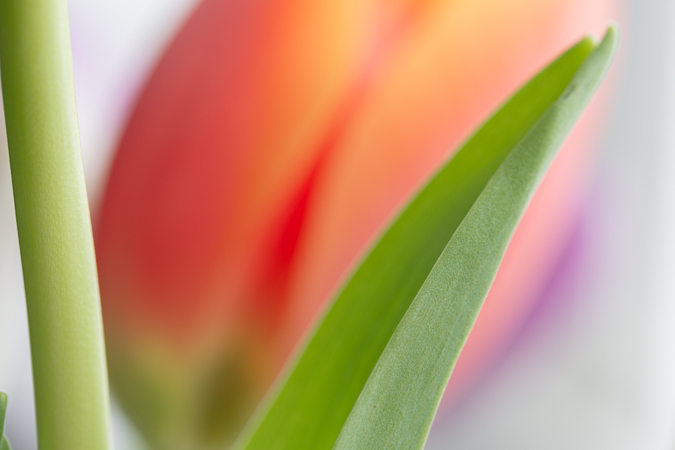Here in Saskatchewan, we talk about the weather a lot and for good reason. It’s ridiculous. We’re under (yet another) advisory—this one for freezing drizzle. Old Man Winter isn’t letting go without a fight. Never, in my 66 years, has there been no spring though. Whether I lived in Saskatchewan, British Columbia, or Washington State, spring came every single year and it’ll burst forth this time too. I have high hopes for April.
Meanwhile, the geese are returning. I watch them fly in formation across the sky, and smile at each sighting. Gerry chips away at the ice on the driveway and tosses snow across the yard to expedite the melt. I order new spring-like cushion covers and browse home decor feeling like it’s time for a refresh. No spring fever yet, more a longing and, yes, a smattering of impatience.
But within this impatience there is also a sense of time unfolding as it should as I journey with others through a season of leaning into wisdom through words written many hundreds of years ago by women we call mystics.
I first dipped my toe into the wisdom of the mystics a few years ago after an experience I’ll describe shortly. Mysticism, the word, can confuse our 21st century sensibilities (does anyone else think of magic?). When asked recently what it means, I found this definition that put it into words what I knew in my heart.
“. . . preparation for, the consciousness of, and the effects attendant upon a heightened awareness of God’s immediate and transforming presence.” ~ Bernard McGinn
I get that. I’ve experienced that.
Once upon a time, in a land two provinces to the west of where I live now, early one morning while I was sipping coffee in bed and reading scripture, I was overwhelmed by a feeling of endless, almost-incomprehensible divine love. I say almost because in that moment I comprehended it as much as is possible for a human being.
It overcame me.
There were no hands raised or hallelujahs shouted, no speaking in an unintelligible language, no shaking or passing out, no weeping, no trances. To a casual observer, it would have seemed as if nothing out of the ordinary happened at all, but in the deepest part of me, suddenly and completely saturated with love, I was changed.
I can’t explain it.
I didn’t ask for it, didn’t expect it, and was beyond surprised when it happened.
The sense of my belovedness stayed with me; I saw people around me through the filter of their belovedness too. It was a sweet, sweet season. In time, the feelings and clear awareness passed, but the experience put me on a path and caused my perceptions to shift. As a result, it is no stretch for me to embrace what these mystics wrote about their transforming experiences with the divine.
This week, I’ve spent time with a woman we call Julian of Norwich. She is a shadow, at best, whose very existence could have easily passed by unnoticed and unmarked. We’re not even sure of her name. She was born in 1343 and lived during the time of the Black Death, surviving three outbreaks of the plague before falling gravely ill at age 30 (whether from the plague or not, we don’t know). There is speculation that she may have been a mother, and had already lost her husband and children to the plague, but we don’t know for sure.
She was not expected to survive her illness, and a priest was called to perform last rites. While in this liminal state between life and death she experienced a series of visions or visitations from the divine and when, incredibly, she recovered, she recorded the visions in what we call “The Short Text.” Twenty years later, ensconced in an anchorage attached to the Church of St. Julian in Norfolk, England, having dedicated her life to solitude, prayer, and giving spiritual direction, she expanded her writing into “The Long Text”, or, as we know it, Revelations of Divine Love. It is earliest surviving book written in English by a woman.
Some of their words are familiar—we’re good at trivializing by putting snippets of wisdom on bookmarks and coffee mugs.
“All shall be well. And all shall be well. And absolutely everything shall be well.”
But the richness comes when we go deeper. There’s so much more. Depending on your filter, some of it might make you feel uncomfortable or even seem controversial. My own experience has taught me to, if not be comfortable in, at least give space for the I-don’t-know and that which is, well, mystical.
She says.
“In love, the divine one wraps us up, holds us tight, and encloses us with tenderness.”
That mirrors my experience and belief.
“When we willingly, lovingly detach our minds from the world around us, we have the one who is all—and we find rest for our spirits.”
Far easier said than done, but this, too, I know to be true. It’s a lifelong goal and practice.
“Our souls are so beloved of the highest one that nothing in creation can completely comprehend how tenderly our maker loves us.”
This I know without a shred of doubt to be true because I have felt that love.
“After Christ himself, Mary is the most joyful sight.”
Hmmm . . . this seems kinda “Catholic” and in some circles I used to travel in we were taught to be wary of (read: stay away from) anything too focused on Mary or Catholicism in general. Should I be reading this stuff at all? (Note. I no longer believe the wariness is warranted and I’m more than comfortable with this material.)
And then there’s this.
“Yes, God is our father—and yes, God is also our mother.”
Whoa. The divine is spirit, of course, but in the gardens of my spiritual formation it was always God-the-father. God as mother? Is that even allowed?
I first considered the concept of a feminine aspect to the divine when I read The Shack by Wm. Paul Young in 2008. The book was controversial in some circles but it spoke to me. I’ve seen the movie that was made of it in 2017 multiple times. It always brings me to tears.
So, yes, reflecting and meditating upon the divine as our mother is allowed. Other medieval theologians knew it to a degree, but Julian believed that God was both mother and father to us—one aspect no greater than the other. Yikes. That’s stepping out on a limb. But, you know, I’m kinda perched on that branch in the same tree alongside her.
Despite appearances at the moment, it’s spring, the season of rebirth. Soon, the perennial plants in my yard will begin to wake from their winter slumber and send green shoots up through the ground. It won’t be long before farmers take to the fields for seeding. Calving season will soon be upon us. There’s something distinctly feminine about spring. What better time to ponder the possibility that the creator of all this, our beloved, the spirit that washed over me with something like liquid love, is my mother as much as my father.
*Quotations from All Shall Be Well: A Modern-Language Version of the Revelation of Julian of Norwich by Ellyn Sanna


Leave a Reply